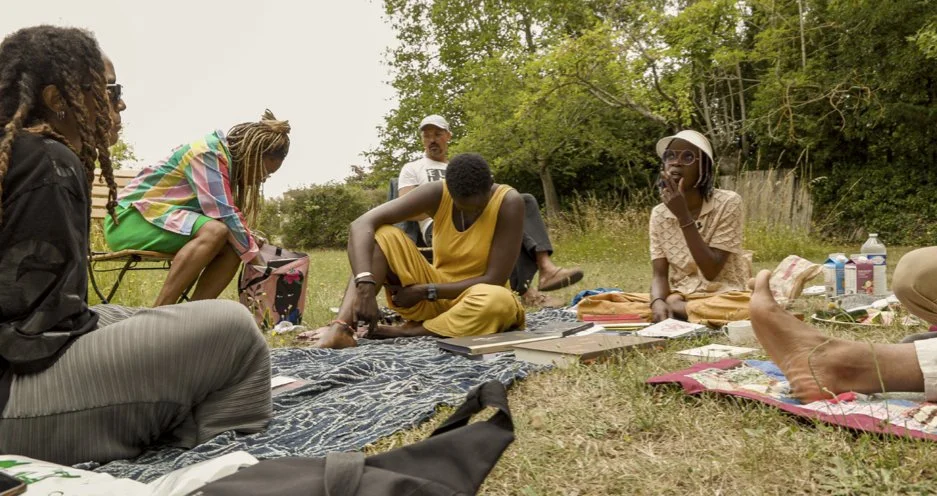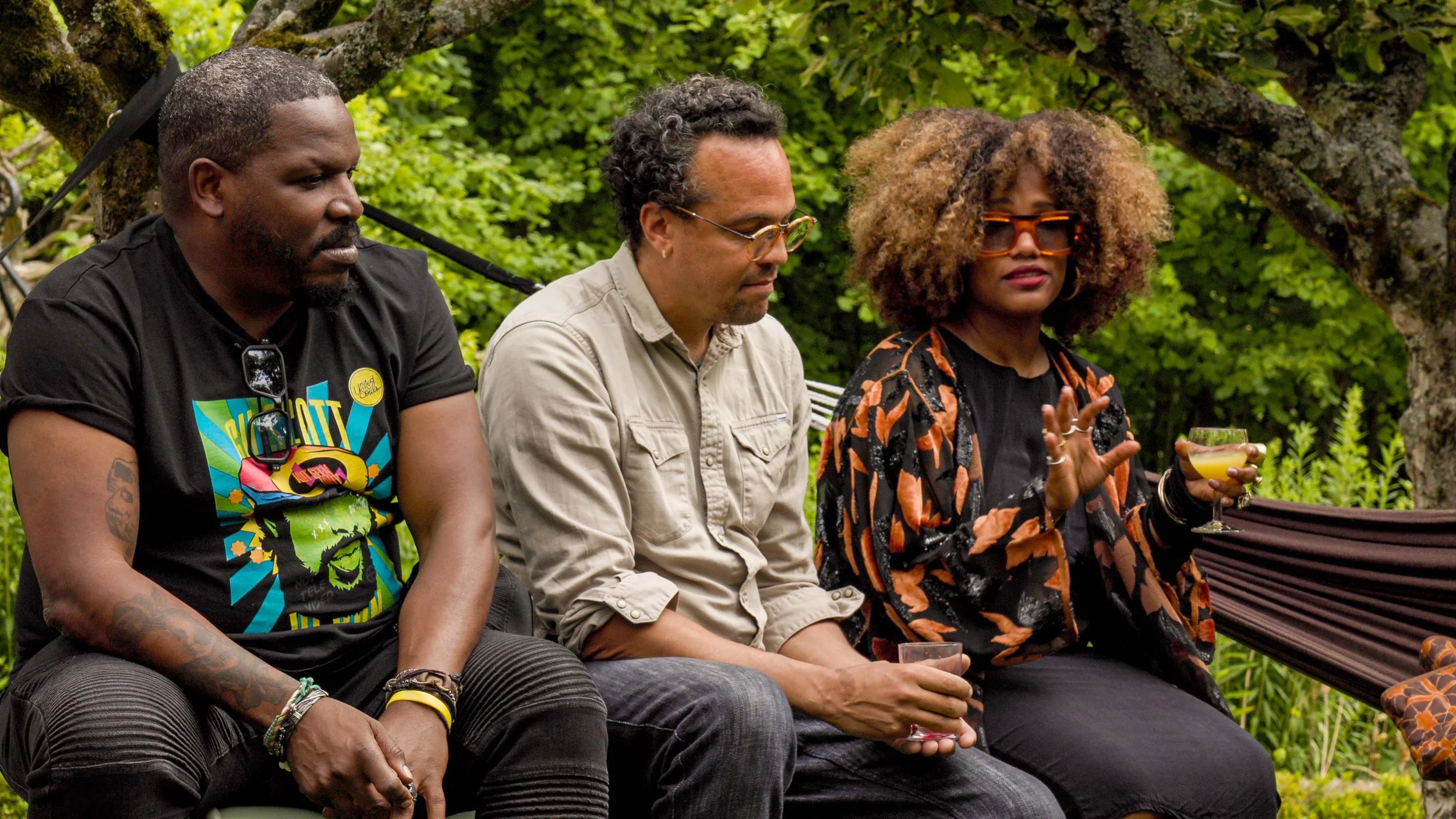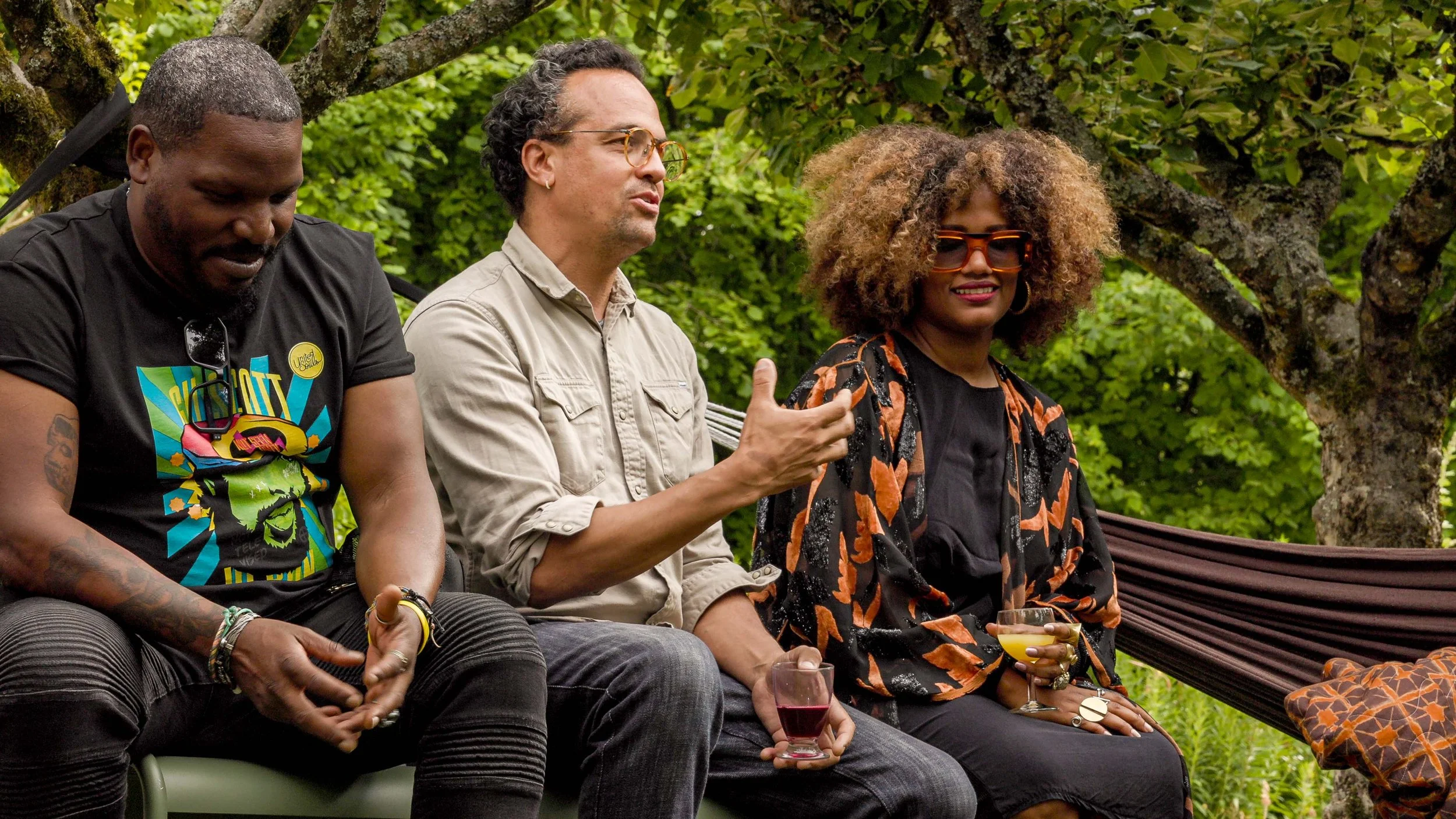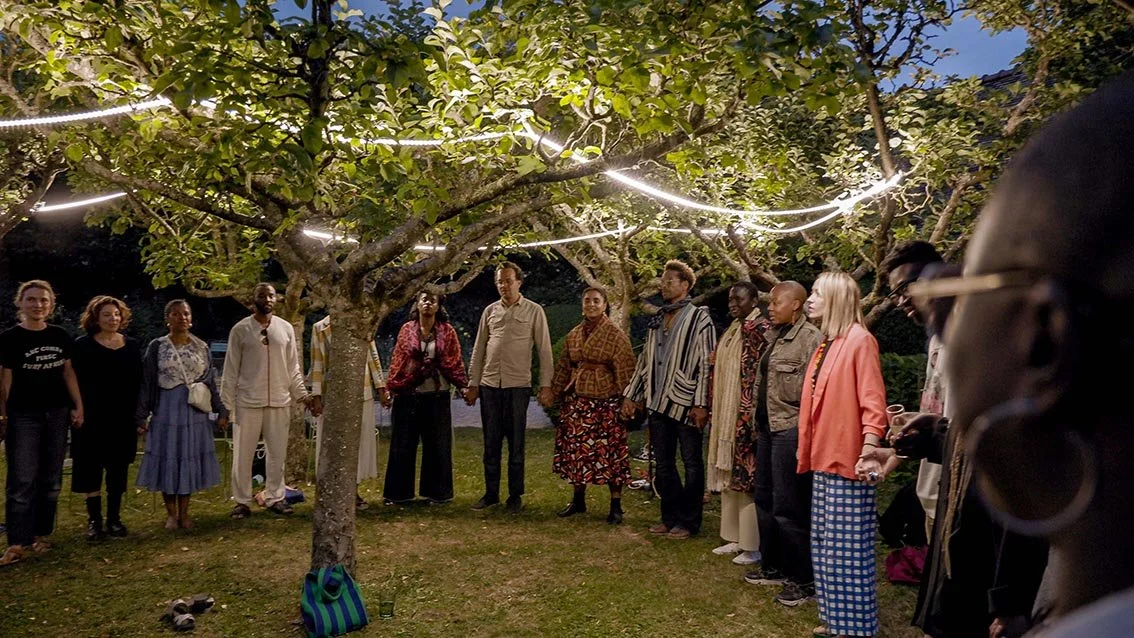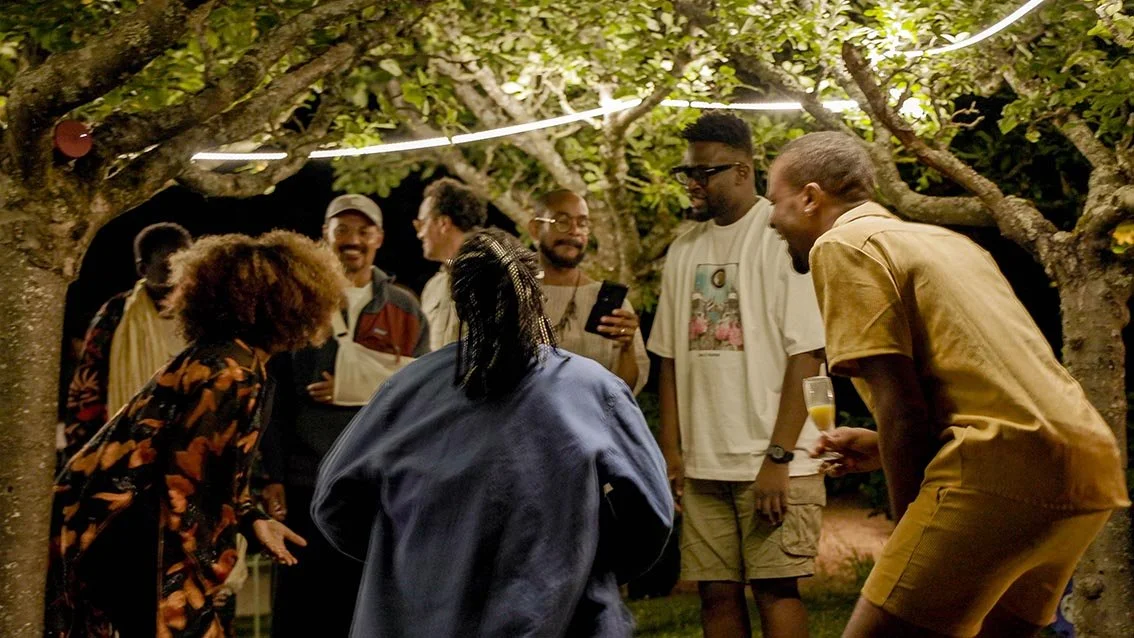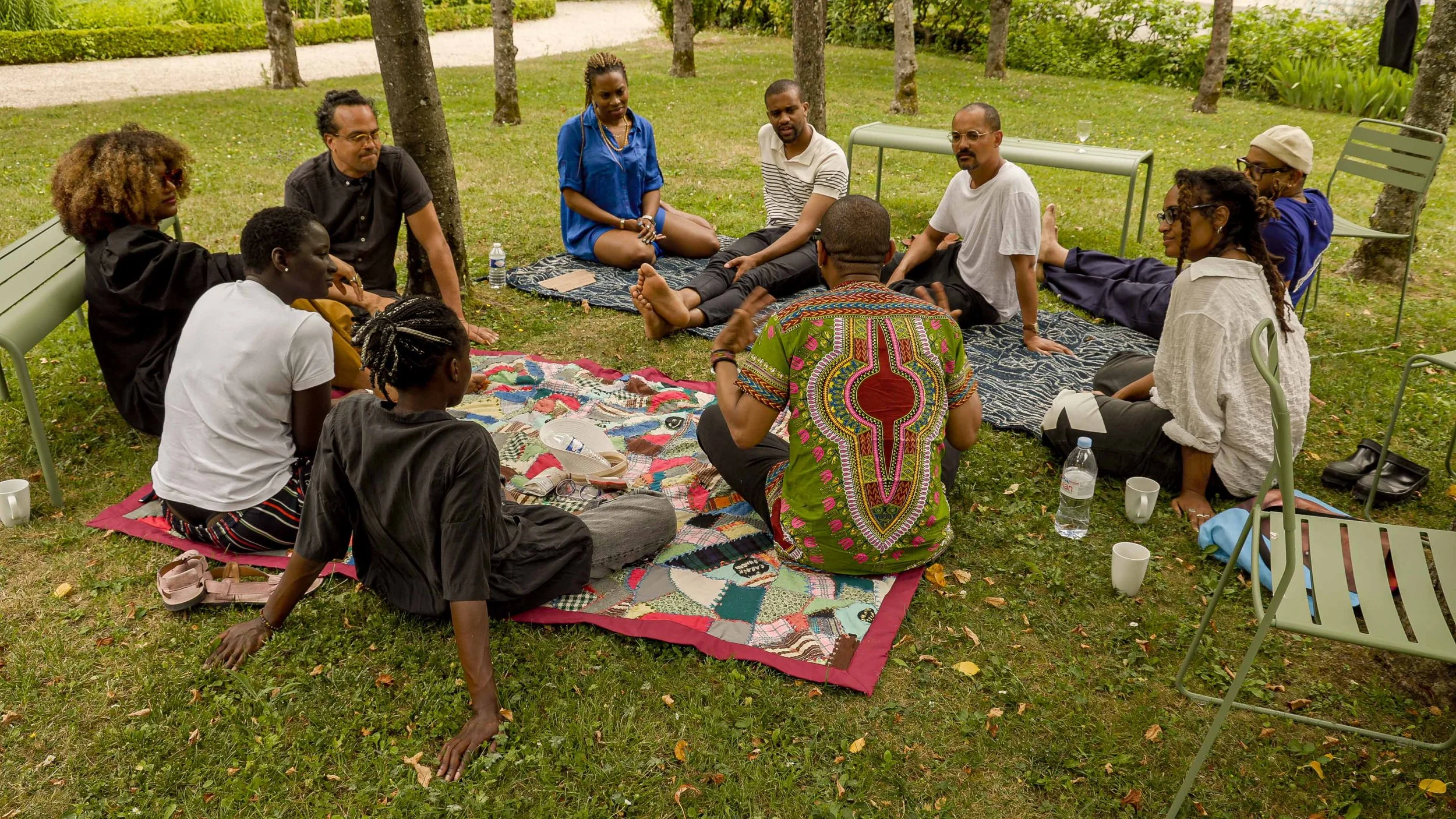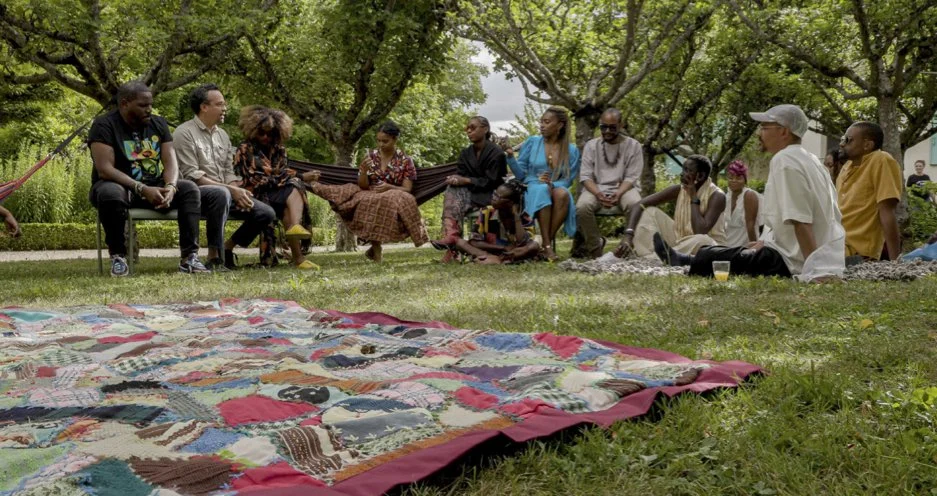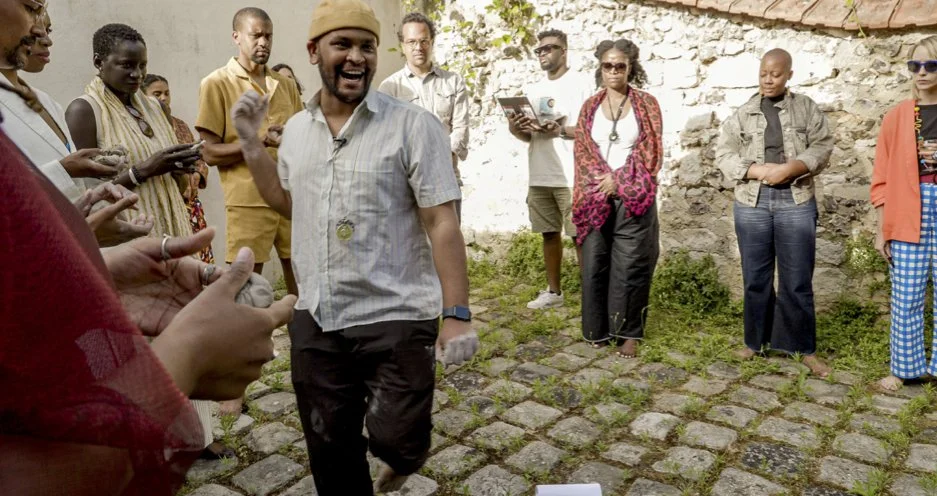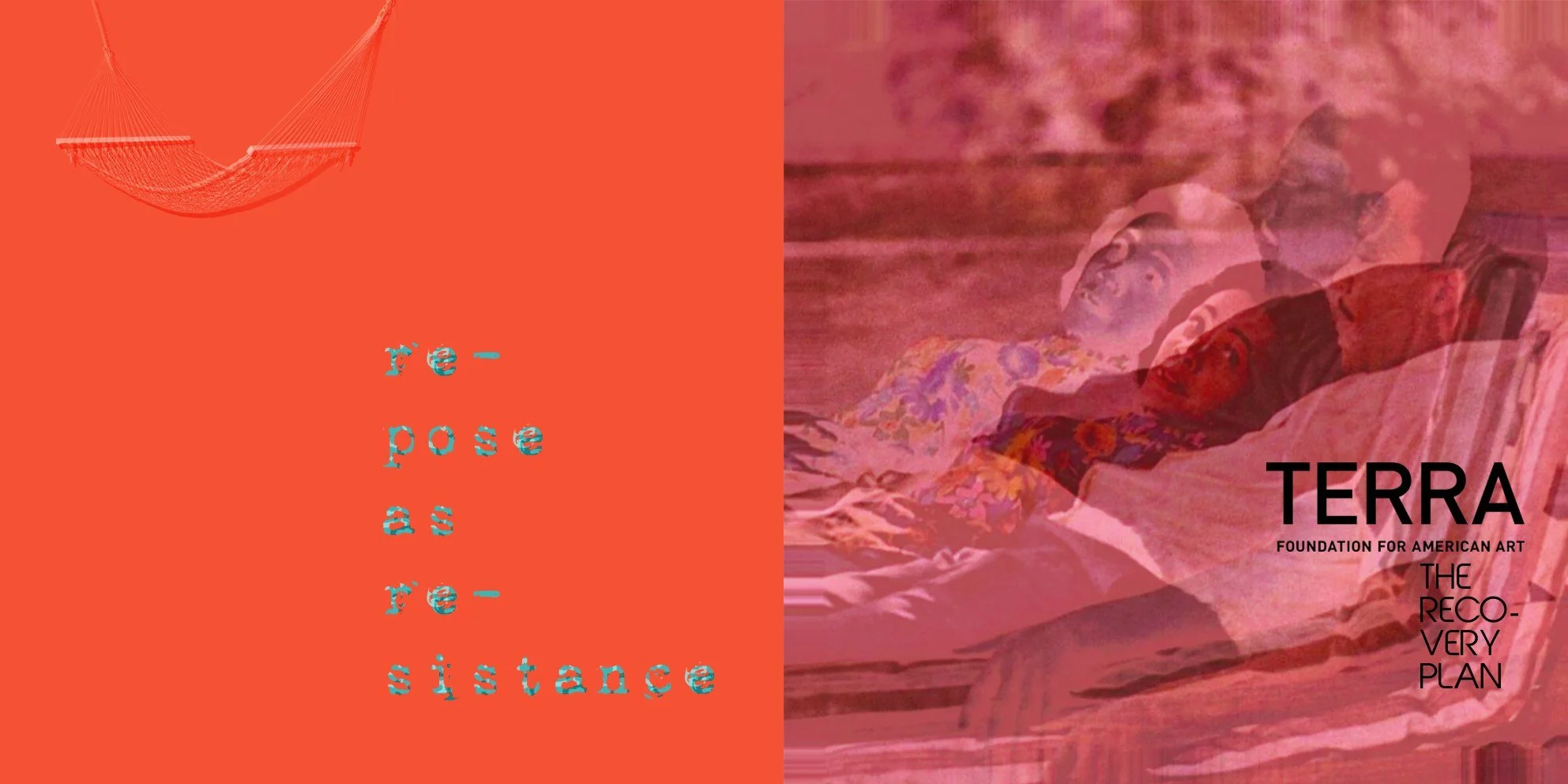
Repose as Resistance is a collective born out of a symposium and retreat hosted by The Terra Foundation in Spring of 2023. Designed and coordinated by The Recovery Plan to generate a diasporic exchange between individuals within the European context working within or around the development of realities that bridge art and social activism. Four days of dialogue, workshops, tours and exchange intended to address new facets of research that could be employed in realization of a range of public facing events and collaborations across and beyond the Europe while establishing new forms of critical exchange around Blackness, diaspora and transnational collaborations fostered by an environment of collectivity. Designed as an incubator, the emerging ideas and strategies are collected and developed beyond this incubation period into toolkits for cross fertilization and methodologies that facilitate the emergence of new sites of collaboration.
The past 10 years of heightened waves of migration from the African continent via the Mediterranean Sea through Italy has expanded reflections on the Black Atlantic in the context of the Black Mediterranean. The growing international impact of the Black Lives Matter movement, heightening an awareness around the colonial legacies across Europe and around the role of cultural production in evading shortsightedness have additionally placed an emphasis on notions of productivity and obligations towards socially engaged work often unresponsive to exhaustion. The importance of sharing dialogues across disciplines is coupled with the importance of conjuring spaces designed not for the production of anything but for a state of rest and rejuvenation that can only be served by environments that trust in the process of coalitions emerging from the simply gesture of sharing and co-participating in rest.
What does it mean to foster exchanges that anchor Black history across Europe? What language and tactics can be applied that are informed by the ongoing work in local contexts while rooted in critical discourse that evades national borders? What is the role of cultural centres in advancing research and connecting with local communities? What is their role in providing sites of refuge? How can we better speak of accessibility in relation to academic research?
In the farm based food production, one crucial awareness is an attentiveness to depleted soil and the need for “resting the land” in order for the soil to restore itself. This retreat is an outgrowth of the works of The Recovery Plan and is to be understood as a step towards a crucial component of the maintenance and care that we hope to elaborate as cultural producers and the responsibilities we share as cultural institutions in fostering sites of rest that attend to the needs of sharing space that view recreation as a methodology for advancing the unplanned and uncoordinated formation of bonds and solidarity. Drawing upon notions of collective exchange, informed by letters, conversations, lunches and archival interfaces, the symposium takes the form of an incubator that intends to provide opportunity for the replenishing of soil in which to plant seeds for programming and future research that can be shared. The network and audience that these events intend to reach become outlets for recovery and repose as resistance.
REPOSE AS RESISTANCE DOCUMENTARY
by Bradly Dever Treadaway
